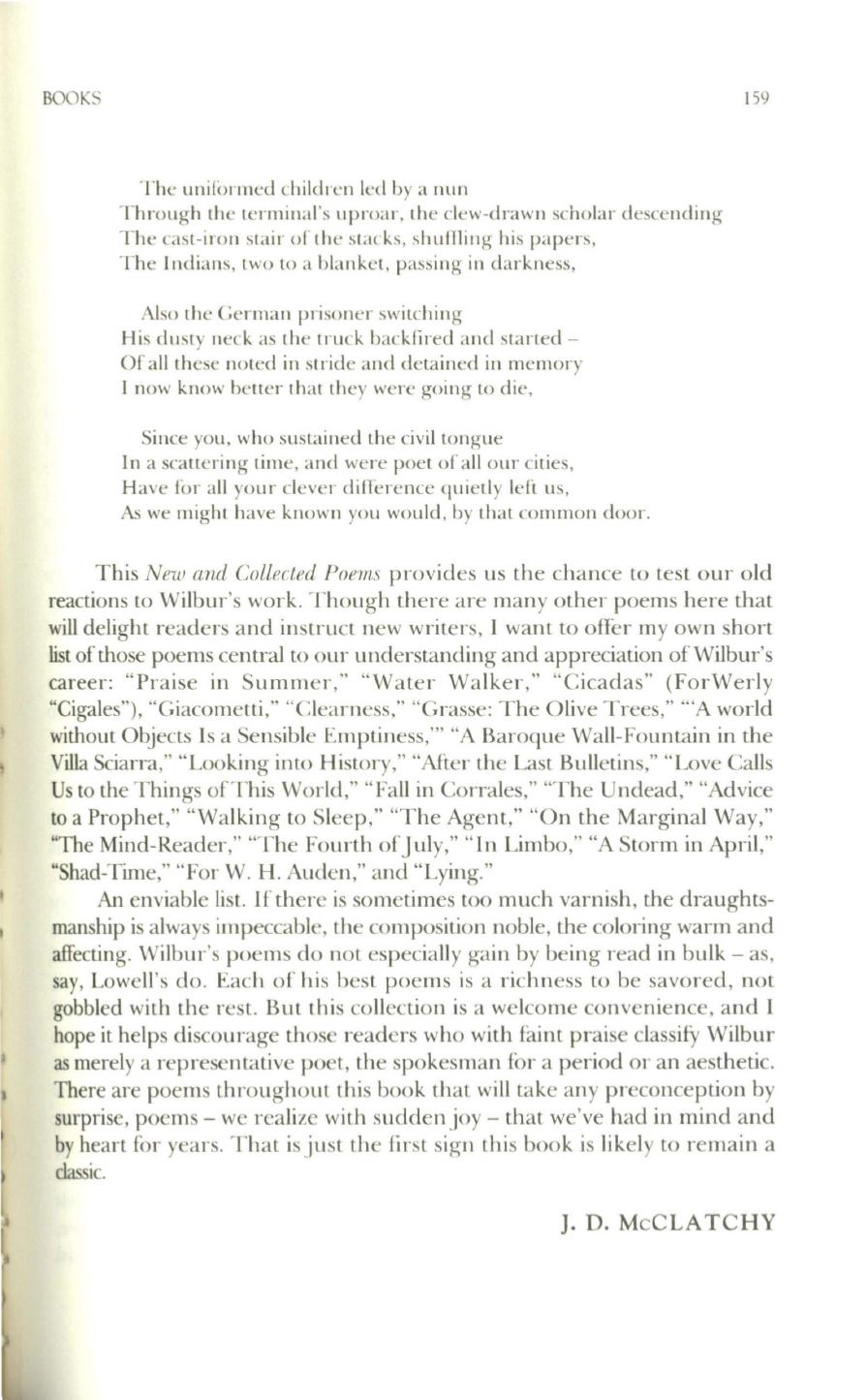
BOOKS
The unifimned childn:n led by a nun
Through thc tcrminal's uprmll', the clew-drawn scholar descending
The cast-iron stair oflhe stacks , shuniing his papers,
The Indians, two to a blanket, passing ill darkness,
Also the German prisoner switching
His dllsty neck as the truck backfired and started -
Of all these noted in stride and detained in memory
I now know bettel' that they were going to die,
Since you, who sustained the civil tongue
In a scattering time, and were poet or all our cities,
Have for all your clever difTerence quietly left us,
As
we might have known you would, by that common door.
159
This
New and Collected Poems
provides us the chance
to
test our old
reactions to Wilbur's work, Though there are many other poems here that
will delight readers and instruct new writers, I want
to
offer my own short
list of those poems central to our understanding and appreciation ofWilbur's
career: "Praise in Summer," "Water Walker," "Cicadas" (ForWerly
"Cigales"), "Giacomelli," "Clearness," "Grasse: The Olive Trees," "'A world
without Objects Is a Sensible Emptiness,'" "A Baroque Wall-Fountain in the
Villa Sciarra," "Looking into History," "After the Last Bulletins," "Love Calls
Us to the Things ofThis World," "Fall in Corrales," ''The Undead," "Advice
to a Prophet," "Walking to Sleep," "The Agent," "On the Marginal Way,"
"The Mind-Reader," "The Fourth ofJuly," "In Limbo," "A Storm in April,"
"Shad-Time," "For W, H. Auden," and "Lying."
An
enviable list. If there is sometimes too much varnish, the draughts–
manship is always impeccable, the composition noble, the coloring warm and
affecting. Wilbur's poems do not especially gain by being read in bulk - as,
say, Lowell's do. Each of his best poems is a richness
to
be savored, not
gobbled with the rest. But this collection is a welcome convenience, and I
hope it helps discourage those readers who with faint praise classifY Wilbur
as
merely a representative poet, the spokesman for a period or an aesthetic.
There are poems throughout this book that will take any preconception by
surprise, poems - we realize with sudden joy - that we've had in mind and
by heart for years. That is just the first sign this book is likely to remain a
classic.
J.
D.
McCLATCHY


